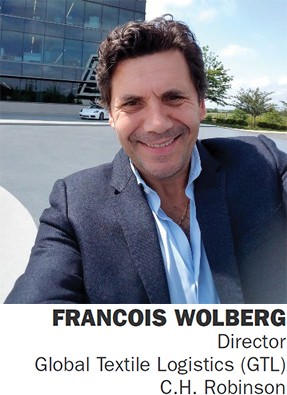 The business of freight forwarding is a truly international one. Not just do we ship goods from numerous countries, but our industry allows us to travel to new countries, embracing new cultures, and eating new types of food. Or sometimes we are at our desk interacting with colleagues from other places that we may not meet but whom we deal with on a regular basis. Our clients and colleagues are just as unique as the countries they are from, and it is important for us to know who they really are. The world is global, and it’s increasingly harder to navigate. To help us, we need to look at things from a different angle.
The business of freight forwarding is a truly international one. Not just do we ship goods from numerous countries, but our industry allows us to travel to new countries, embracing new cultures, and eating new types of food. Or sometimes we are at our desk interacting with colleagues from other places that we may not meet but whom we deal with on a regular basis. Our clients and colleagues are just as unique as the countries they are from, and it is important for us to know who they really are. The world is global, and it’s increasingly harder to navigate. To help us, we need to look at things from a different angle.
Facebook, Instagram, Twitter, WhatsApp and all the available technologies have been fantastic at allowing us to be in contact with the world in an instant. We are emailing each other hundreds of times, talking to each other often on the phone during conference or individual calls, and exchanging many texts, but do we really know who is on the other side?
The interpersonal relationships we build with clients and colleagues is an important one. In today’s international work environment, this relationship building becomes more complex. Our clients and colleagues are unique and we need to recognize this and take time to learn about them. When talking to a colleague or client from another country, take a chance to ask how their daily commute is, how long it takes, which mode of transportation they are using, how challenging it might be. Ask them about their main holidays, their rituals, or anything you would like to know. Take the time to simply ask how are they are doing today. Listen to their replies. These conversations written or spoken will help you to better understand the country and the people you are dealing with every single day and this effort will go a long way in building better relationships with each other.
If you travel to or even have meetings in your home country with people from Egypt or the Middle East in general you need to know you should not shake hands with a woman and you will often kiss a man on the cheek to say hello. Egyptians love to negotiate and a meeting can become very colorful as both parties try to get the best deal. If you are offered a drink you should never refuse; they are likely to be offended and you may lose the opportunity to close a deal. Do not show the bottom of your shoes when you sit down to talk to someone as it is a huge sign of disrespect. After the meeting, when your counterpart walks you to the door or the elevator, take this as a really good sign – it is one of respect and means the meeting went really well.
If you travel to India you will quickly learn that a meeting can take a long time as there is a ritual you must respect if you are looking to close the deal. Sometimes your first sight will be many pairs of shoes sitting outside an office. Do not ignore this, as it means the host wants you to take your shoes off prior to coming in. It is a sign of respect based on his religious beliefs. Once in, it is common to make small talk. Then talk about what brings you there. Refreshments and snacks are next, and do not say no! Most of the time you will have to use your hands instead of utensils when you eat. Do not be offended, wash your hands and do the best you can. Finally the meeting will conclude resuming what was discussed and what action and follow up shall be taken. Follow this simple protocol and you are certain to be appreciated for it.
When dealing with people from France, be aware of a few things prior to engaging in a negotiation. French people in general have a tendency to say “no,” right off the bat, requiring you to move the “no” to a “yes” if possible. You must prove yourself. Do not be discouraged and keep introducing your services and be passionate in what you believe. French and Europeans in general are very loyal so if you succeed to convince your eventual new customer or colleague you will keep him for a long time. Lunch is a religion in France so do not hesitate to invite your interlocutor. This gesture can go a long way to gain the respect of your future or current client.
Every country, region, and city in the world have their own traditions and rituals, and it is impossible to learn them all. But, it is important in our business to try to understand our clients and colleagues the best we can, as any effort you make will be noticed and appreciated. You will see your relationships and partnerships with your colleagues, vendors or customers strengthen. Be curious, ask questions, be respectful, be knowledgeable about your business, and educate yourself about them. Knowing our clients and colleagues from a different angle is extremely important and you will be rewarded for trying more you can imagine.